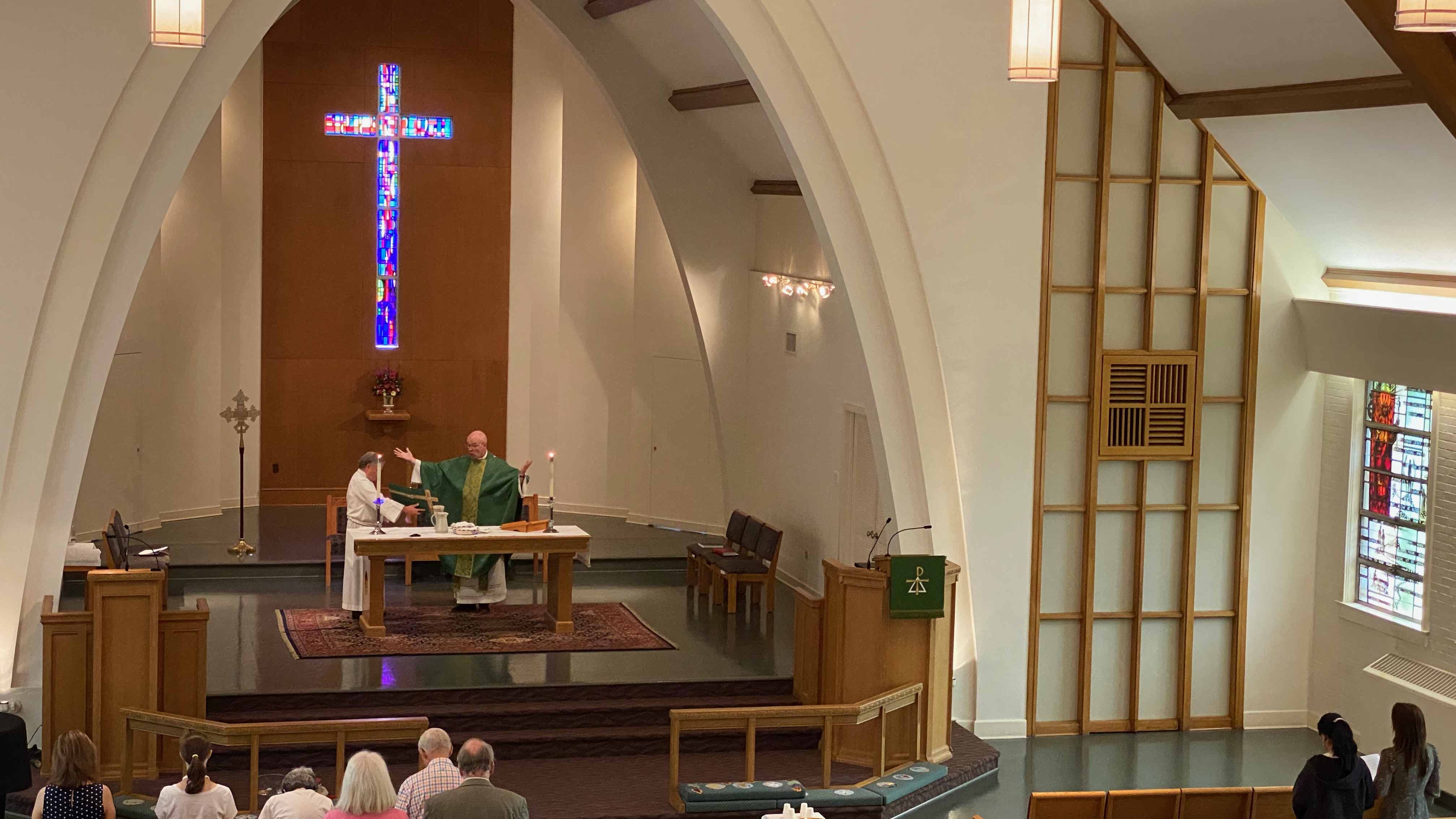Week of the Twenty-fourth Sunday after Pentecost
Dear Friends in Christ:
Reformation Day is behind us, but the reforming spirit in Lutheran accents is ever with us. One of the key features of Lutheranism is a celebration of the centrality of God’s word – sola scriptura – and the invitation to be engaged by that word individually in our own devotions but also communally in our worship and in our congregation’s Bible studies. We currently have two separate occasions for group Bible study at Resurrection Church – every other week on Thursday mornings at 11:00 when we look together at one of the upcoming Sunday readings, and then also on Monday evenings at 6:30 when we engage various themes of justice revealed in the scriptures. Both of these Bible studies continue to be offered via Zoom. Also, in January of 2022, a new opportunity for Bible study will be offered when youth director, Amanda Lindamood, and I will co-lead intergenerational Bible studies for all ages. Watch for further word about these opportunities in coming weeks.
A common refrain has consistently emerged whenever we look at biblical passages together, and that is that we become keenly aware of the rich textures of meaning that are revealed when we let the Bible speak with its fullness and when we undertake such engagement together, communally sharing insights, asking questions, all of which deepen understandings. Very quickly we move beyond literal or simplistic first impression understandings of biblical passages, which are often more the result of what we read into the scriptures than what the scriptures actually say.
I also consistently observe in these studies how our time together dwelling with biblical passages is perhaps one of the ways that Jesus’ promise in John’s Gospel is fulfilled in our midst. Addressing the disciples, Jesus said, “I still have many things to say to you, but you cannot bear them now. When the Spirit of truth comes, he will guide you into all the truth.” (John 16:12-13a) In faith, we trust that the Spirit is guiding us today into such truth when deeper understandings of the scriptures emerge from our Bible studies.
Finally, continuing to extol the importance of Bible study in our life together, it’s also crucial to recall that Martin Luther was given the gift of the rediscovery of the centrality of justification by grace effective through faith when he was involved in rigorous Bible study. Thus, see below Luther’s description of his graced experience of discovery which made all the difference in the world for him, and for the church of his day and for the church in our day even now.
In short, Bible study is powerful stuff. It’s never too late to join in! Consider yourself invited once again.
Seeking to be kept steadfast in the word that is Christ,
Pastor Jonathan Linman
Martin Luther, “The Tower Experience”
… I had already during that year returned to interpret the Psalter anew. I had confidence in the fact that I was more skillful, after I had lectured in the university on St. Paul’s epistles to the Romans, to the Galatians, and the one to the Hebrews. I had indeed been captivated with an extraordinary ardor for understanding Paul in the Epistle to the Romans. But up till then it was not the cold blood about the heart [an allusion to Virgil, Georgics], but a single word in Chapter 1 [:17], “In it the righteousness of God is revealed,” that had stood in my way. For I hated that word “righteousness of God,” which, according to the use and custom of all the teachers, I had been taught to understand philosophically regarding the formal or active righteousness, as they called it, with which God is righteous and punishes the unrighteous sinner.
Though I lived as a monk without reproach, I felt that I was a sinner before God with an extremely disturbed conscience. I could not believe that He was placated by my satisfaction. I did not love, yes, I hated the righteous God who punishes sinners, and secretly, if not blasphemously, certainly murmuring greatly, I was angry with God, and said, “As if, indeed, it is not enough, that miserable sinners, eternally lost through original sin, are crushed by every kind of calamity by the law of the decalogue, without having God add pain to pain by the gospel and also by the gospel threatening us with his righteousness and wrath!” Thus I raged with a fierce and troubled conscience. Nevertheless, I beat importunately upon Paul at that place, most ardently desiring to know what St. Paul wanted.
At last, by the mercy of God, meditating day and night, I gave heed to the context of the words, namely, “In it the righteousness of God is revealed, as it is written, ‘He who through faith is righteous shall live’” [Rom 1:17]. There I began to understand that the righteousness of God is that by which the righteous lives by a gift of God, namely by faith. And this is the meaning: righteousness of God is revealed by the gospel, namely the passive righteousness with which merciful God justifies us by faith, as it is written, “He who through faith is righteous shall live.” Here I felt that I was altogether born again and had entered paradise itself through open gates. There a totally other face of the entire Scripture showed itself to me. Thereupon I ran through the Scriptures from memory, I also found in other terms an analogy, as, the work of God, that is, what God does in us, the power of God, with which He makes us strong, the wisdom of God, with which He makes us wise, the strength of God, the salvation of God, the glory of God.
And I extolled my sweetest word with a love as great as the hatred with which I had before hated the word “righteousness of God.” Thus that place in Paul was for me truly the gate to paradise. Later I read Augustine’s The Spirit and the Letter, where contrary to hope I found that he, too, interpreted God’s righteousness in a similar way, as the righteousness with which God clothes us when he justifies us. Although this was heretofore said imperfectly and he did not explain all things concerning imputation clearly, it nevertheless was pleasing that God’s righteousness with which we are justified was taught. Armed more fully with these thoughts, I began a second time to interpret the Psalter…. (Luther’s Works, vol. 34. Muhlenberg Press, 1960, pp. 336-38)






